Case Study: Ethical Dilemma in Business - PHILOSOPHY 260 Analysis
VerifiedAdded on 2022/09/16
|5
|866
|17
Case Study
AI Summary
This case study analyzes an ethical dilemma faced by Chantale, an employee concerned about her company's improper disposal of chemicals and its potential environmental and public health impacts. The assignment explores Chantale's decision to voice her concerns publicly after her employer dismissed them. It examines the limitations of loyalty, the ethical responsibilities of individuals and corporations, and the potential consequences of whistleblowing. The analysis considers whether Chantale acted ethically by prioritizing public safety and the environment over her job security. The assignment also discusses the actions the author would take in a similar situation, emphasizing the importance of exhausting internal channels before going public. The case highlights the complexities of ethical decision-making in a business context, particularly when environmental concerns and public health are at stake, and the need to balance corporate interests with social responsibility. The student uses relevant concepts from the course to support their analysis.
1 out of 5
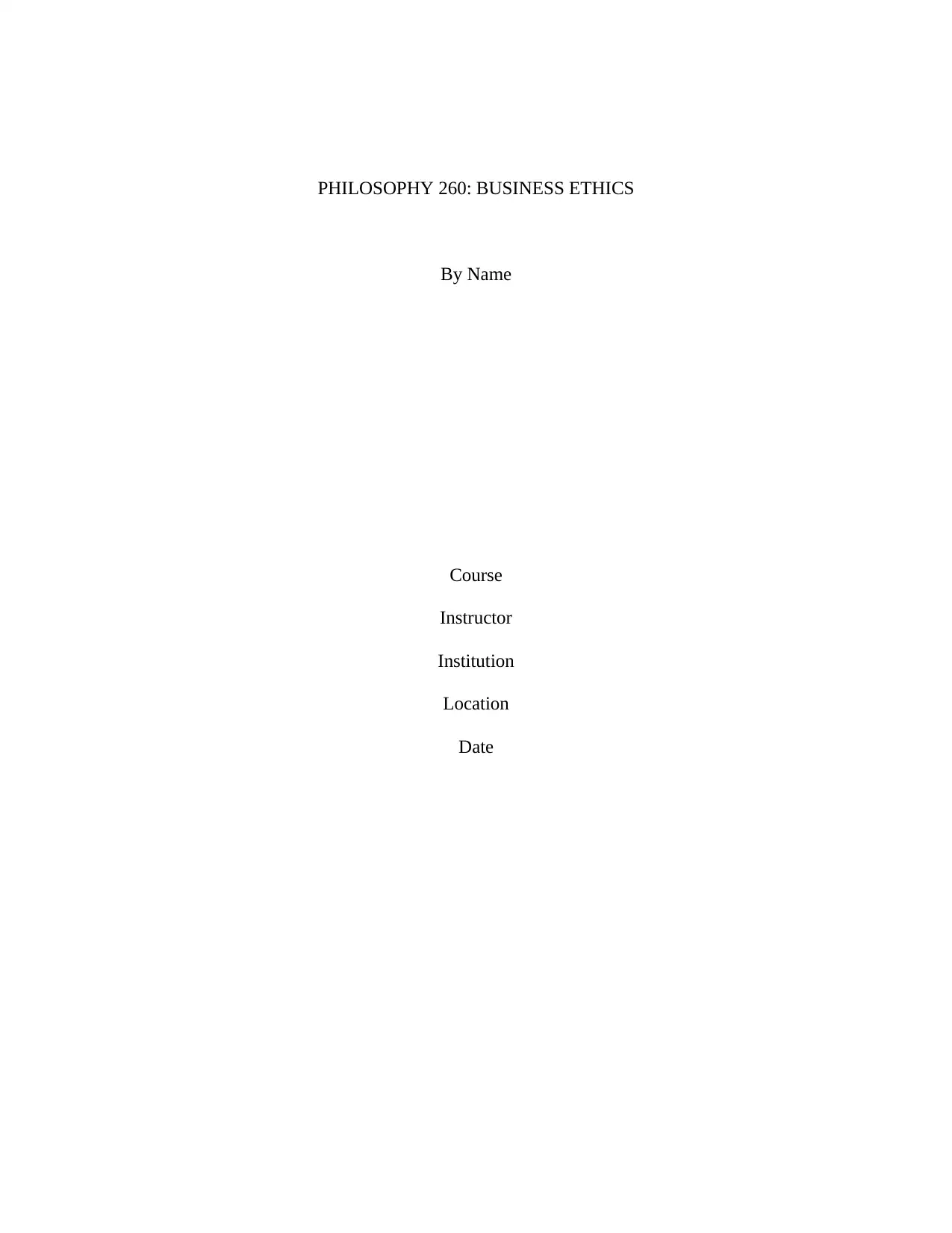
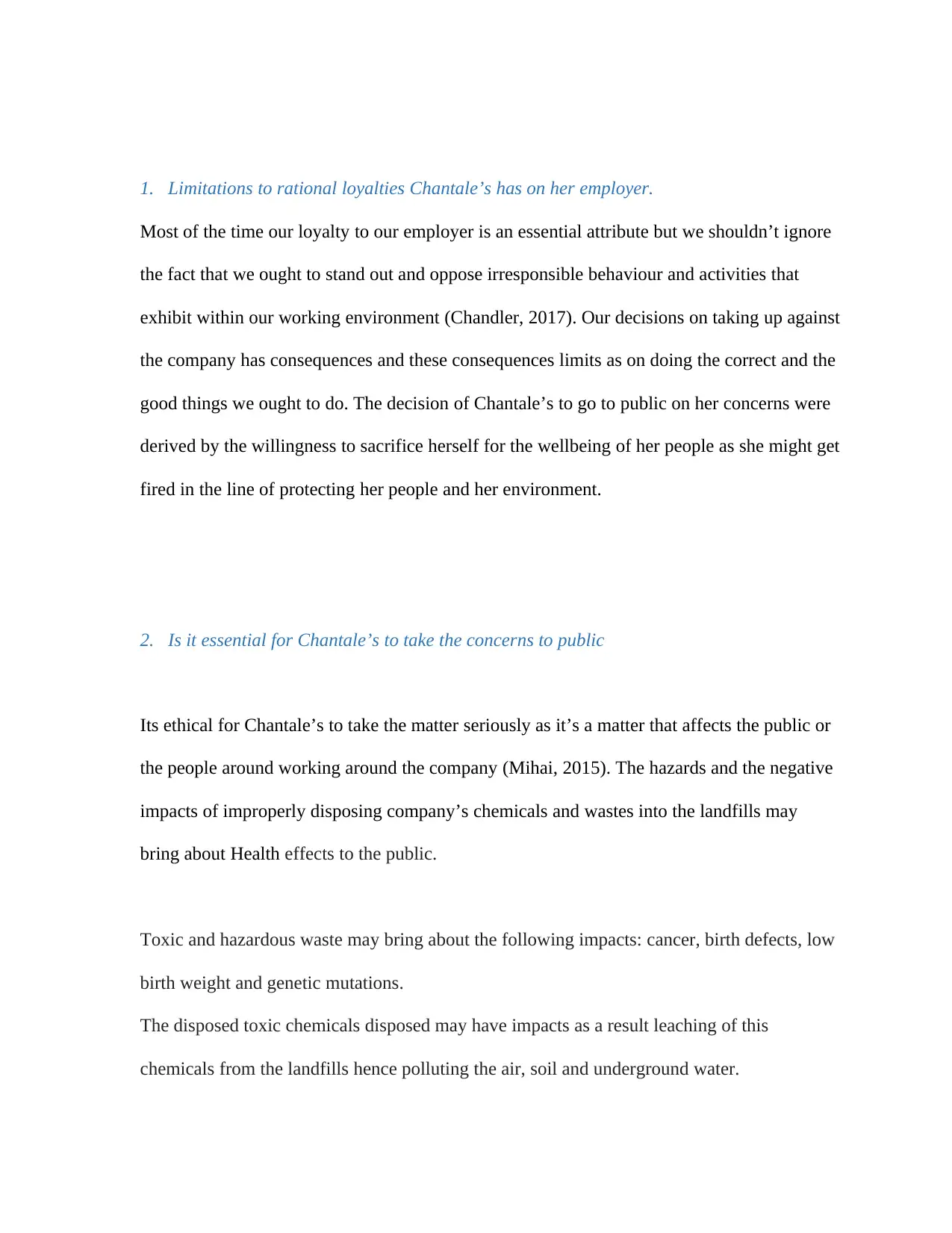
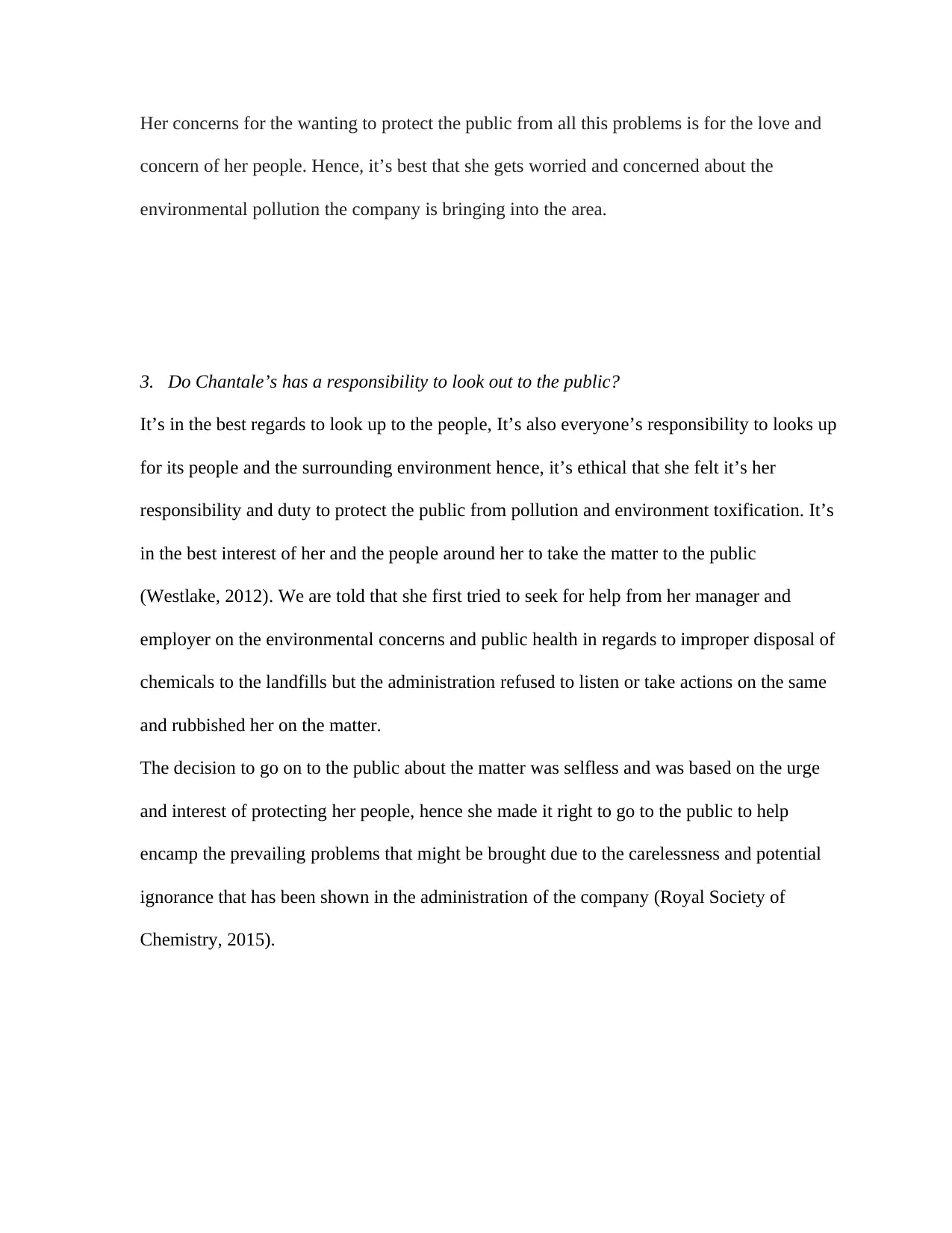

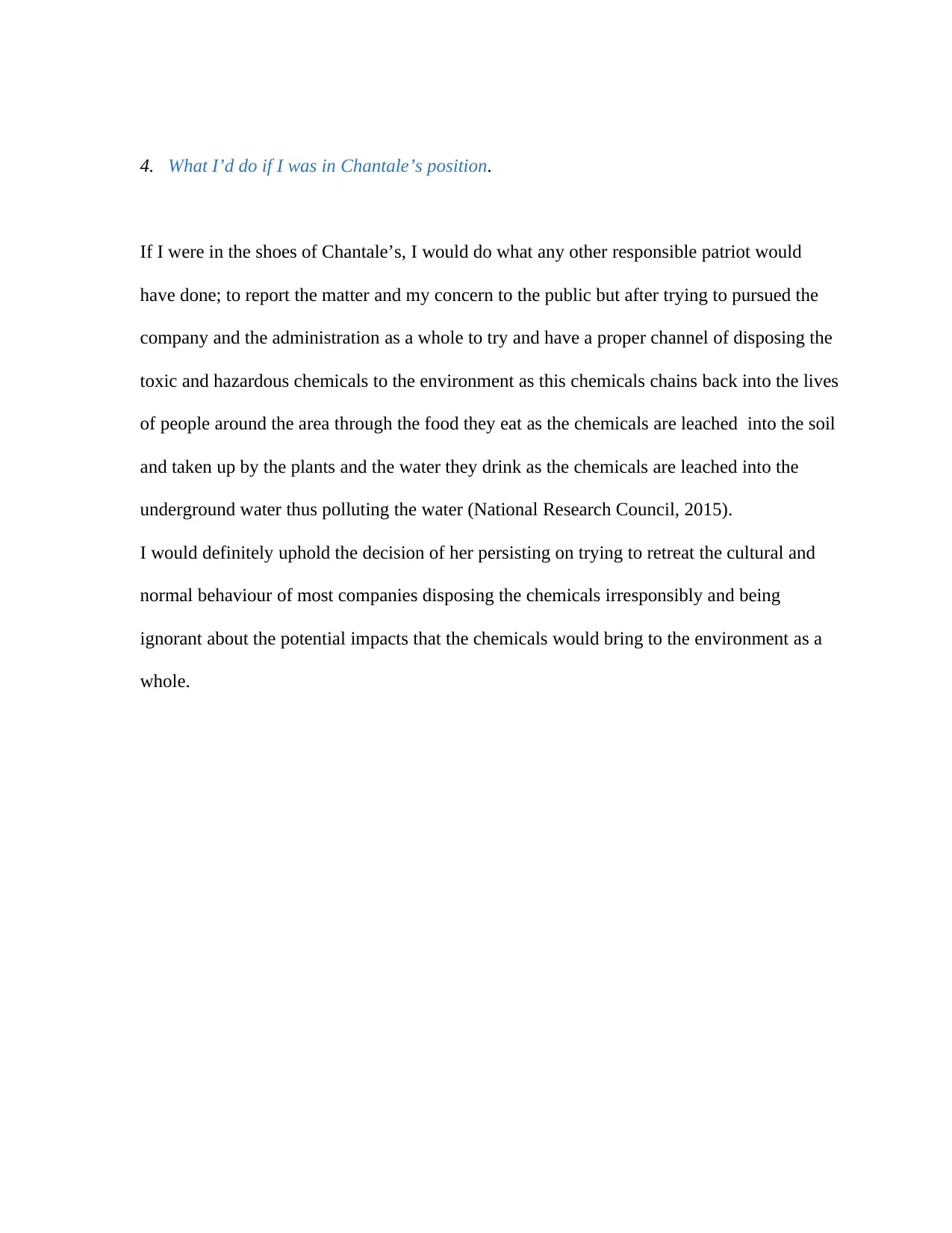
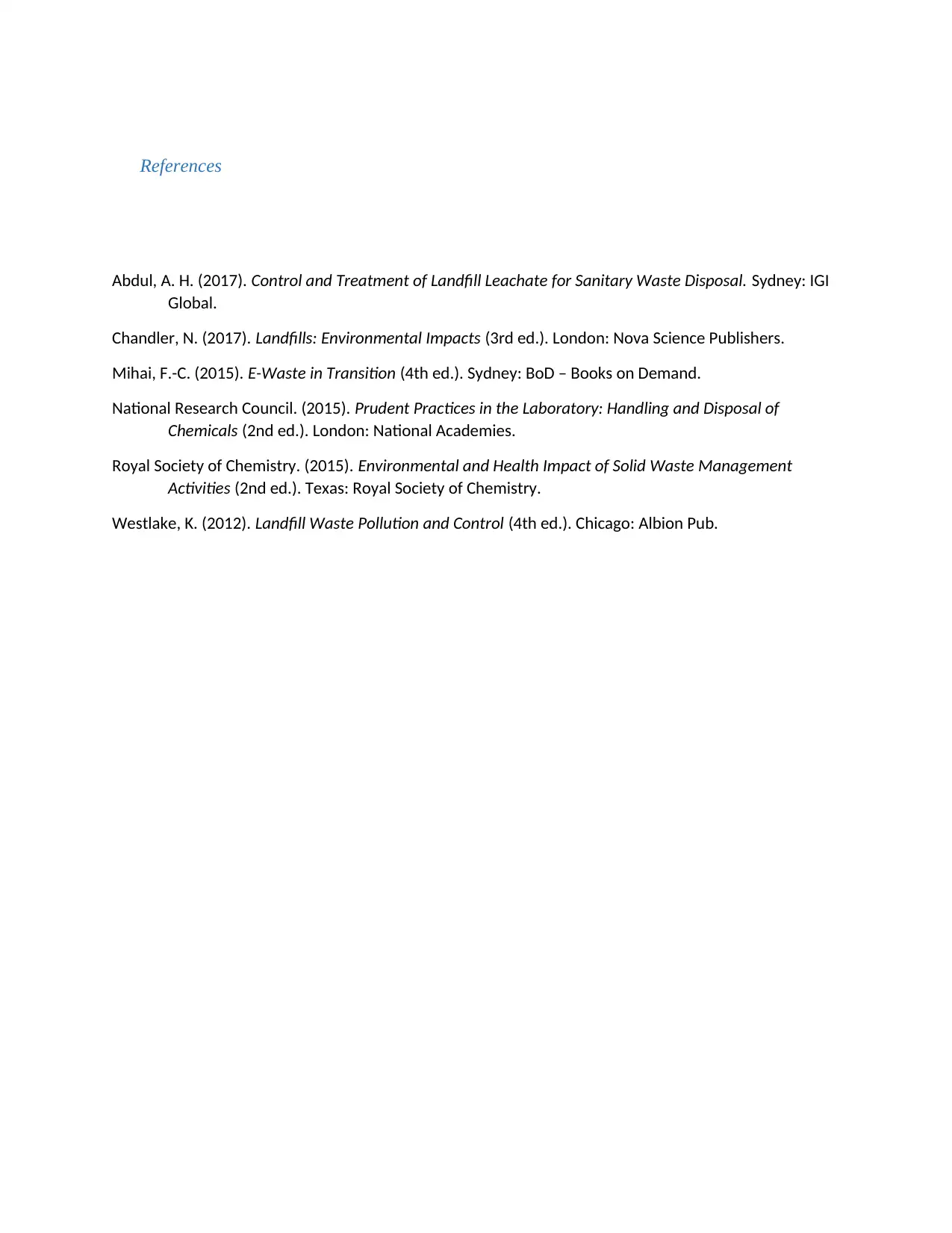


![[object Object]](/_next/static/media/star-bottom.7253800d.svg)